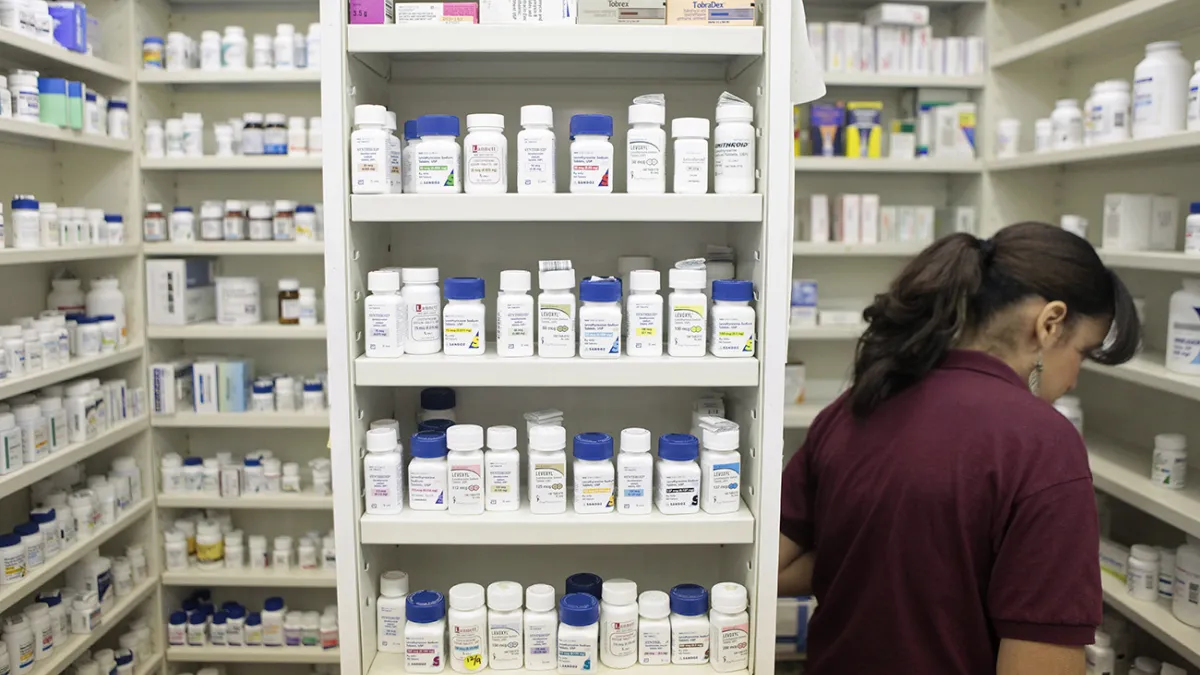
Popular diabetes and weight-loss drugs Ozempic, Rybelsus and Wegovy are among 15 drugs selected by the Biden administration for a second annual round of Medicare price negotiations meant to bring down costs for seniors and people with disabilities.
Under the Inflation Reduction Act of 2022, the government will negotiate prices for the newly chosen drugs with their manufacturers this year and any negotiated prices will take effect in 2027. The Biden administration announced the list well before a February 1 deadline. It said that about 5.3 million Medicare Part D beneficiaries used these drugs between November 2023 and October 2024 and the drugs accounted for about $41 billion, or about 14%, of Medicare Part D costs during that time.
An initial group of 10 drugs was chosen for negotiations last year, and Medicare reached deals for lower prices on all of them, with discounts ranging from 38% to 79% compared to list prices. Those negotiated prices will take effect in 2026, but Medicare says that if the negotiated rates had been in effect in 2023, they would have resulted in estimated savings of $6 billion, or about 22%. Medicare beneficiaries are expected to save $1.5 billion in out-of-pocket costs for those drugs next year.
“Last year we proved that negotiating for lower drug prices works. Now we plan to build on that record by negotiating for lower prices for 15 additional important drugs for seniors,” Health and Human Services Secretary Xavier Becerra said in a statement.
Separately, the Biden administration says that the Inflation Reduction Act’s $2,000 annual cap on out-of-pocket drug costs for those on Medicare Part D will help 11 million people save a combined $7.2 billion, or about $600 per enrollee.
The drugs picked for negotiations this year also include Trelegy Ellipta, a prescription inhaler for chronic obstructive pulmonary disease and asthma; and Xtandi, Pomalyst, Ibrance and Calquence, used to treat various types of cancer. The other names on the list are Austedo and Austedo XR; Breo Ellipta; Janumet and Janumet XR; Linzess; Ofev; Otezla; Tradjenta; Vraylar; and Xifaxan.
Together, the 25 drugs chosen for the first two rounds of negotiations represent more than one-third of Medicare Part D prescription drug costs, the Biden administration said. Up to 15 more drugs are supposed to be chosen next year and as many as 20 can be chosen each time after that.
The administration treated Ozempic, Rybelsus and Wegovy — different formulations of the drug semaglutide, approved by the Food and Drug Administration at different times — as one class. Drug giant Novo Nordisk, which makes all three drugs and has sued to block drug-price negotiations, criticized the administration action.
“Novo Nordisk remains opposed to government price setting through the IRA and has significant concerns about how the law is being implemented by this administration, including aggregating multiple products that individually would not meet the requirements of the statute,” the company said in a statement to news outlets.
Novo Nordisk and the other drug companies involved now have until February 28 to decide if they will participate in negotiations. Those talks will now be overseen by the Trump administration, even as some Republicans have called for ending such negotiations and drugmakers have sued to end them.
“The IRA price setting process is dangerous for millions of Americans who rely on innovative treatments and created unnecessary, costly bureaucracy. In rushing out this list in their final days, the Biden administration once again fails to address the true challenges facing seniors and Medicare,” Stephen J. Ubl, the president and CEO of drug industry trade group PhRMA, said in a statement.
While negotiated prices for Ozempic and similar drugs could add up to substantial savings, the Biden administration has also proposed to allow Medicare and Medicaid to cover the drugs not just as treatments for diabetes and heart disease but for weight loss as well, a shift that reportedly could come with costs as high as $35 billion over 10 years. The Trump administration will decide whether to implement that proposal, and Trump’s nominee for health secretary, Robert F. Kennedy Jr., has criticized the drugs in the past, though he said recently that they “have a place.”